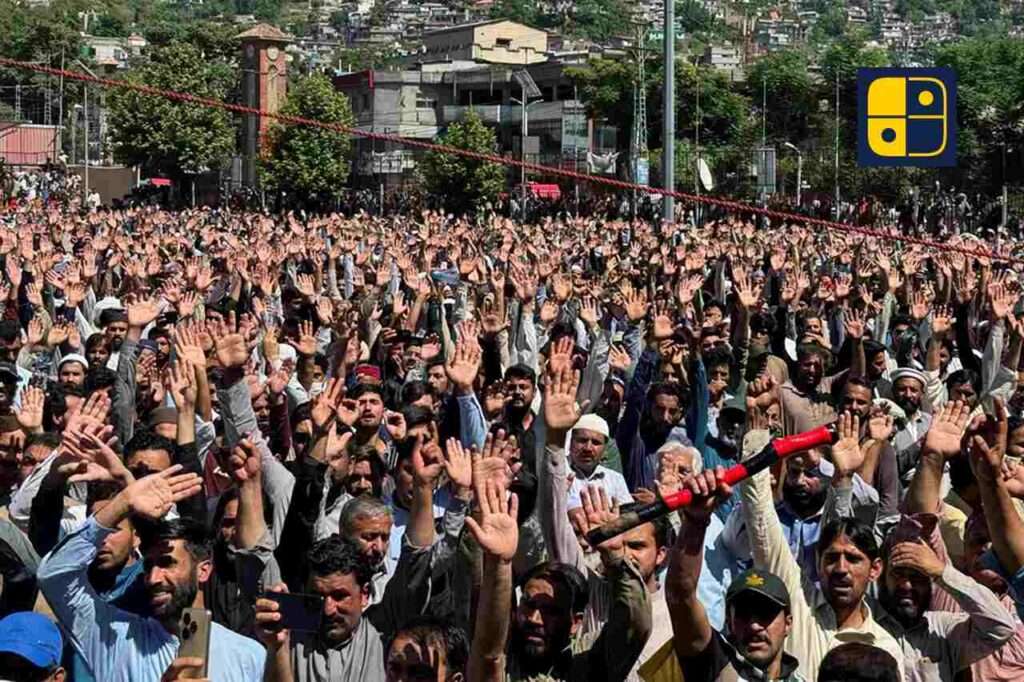Pakistan currently faces an existential issue. The recent protests in Pakistan-occupied Kashmir (PoK) have demonstrated the baselessness of Islamabad’s claims on Kashmir, revealing a state unraveling at the seams of contradiction.
Economically, Pakistan is bankrupt. Inflation is crushing ordinary households, electricity tariffs remain unaffordable, and IMF dictates have left the government with little room to manoeuvre. In Pakistan Occupied Kashmir (PoK), anger runs even sharper: despite having its own hydropower projects such as the Mangla project, local people are charged sky-high rates for electricity generated from their own land. The pleads for cheaper power, subsidised wheat and building infrastructure are as basic as can be, but have gone unfulfilled in PoK.
Militarily, in the aftermath of a recent defeat against India, Pakistan has been humiliated. More than ever, the Army, formerly portrayed as the nation’s protector, is openly defied and challenged in PoK. Those protesting the government’s policies actively challenge the Army’s heavy-handed suppression, too. The appeal for an end to reserved assembly seats, which have long been used to distort PoK politics, symbolizes rejection of Pakistani authority.
What is most striking, however, is the shifting sentiment of PoK’s people. Many openly argue they would be better off with India, pointing to visible development in Jammu & Kashmir after Article 370’s abrogation. For Pakistan, this is a devastating irony: the very region it claims to “liberate” now seeks escape from its neglect.
The unrest in PoK is more than a protest. It is the collapse of Pakistan’s Kashmir narrative, its military’s authority, and its political legitimacy leaving a weakened state struggling to hold itself together.

